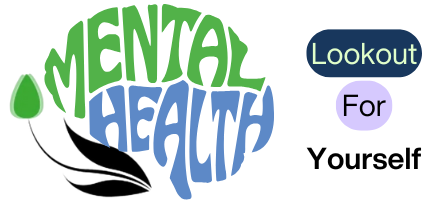Gay, Lesbian, Straight Education Network (GLSEN) Survey
Gay, Lesbian, Straight Education Network (GLSEN) Survey used in psychology are essential tools for clinical and research assessments. This post is based on dissertations submitted by students during their academic programs. At ‘Mental Health,’ we arrange and provide these resources to you. Here is the complete list of resources (Click Here). To access these materials, click on the ‘Avail File’ section below.”
Table of Contents

About Gay, Lesbian, Straight Education Network (GLSEN) Survey
The Gay, Lesbian, Straight Education Network (GLSEN) Survey is a vital tool developed to assess the school climate experienced by LGBTQ+ youth in the U.S. schools. Originally conducted as the National School Climate Survey in 2005 by Kosciw and Diaz, this survey provides essential data on the challenges faced by lesbian, gay, bisexual, transgender, and queer students, including bullying, harassment, and discrimination. This tool is instrumental in advocating for safer, more inclusive educational environments and guiding policy changes at schools nationwide.
Purpose of the Tool
The GLSEN Survey is designed to:
- Assess School Climate: Evaluate the experiences of LGBTQ+ students regarding their safety, support, and overall treatment in educational environments.
- Measure Levels of Bullying and Harassment: Quantify the prevalence of homophobic or transphobic behavior, including physical or verbal abuse, within schools.
- Advocate for Policy Changes: Use the data to support efforts to create more inclusive policies and practices within schools that protect LGBTQ+ students.
By collecting valuable information on the negative experiences of LGBTQ+ youth, this tool helps to inform educators, policymakers, and advocates on the necessary actions to improve school safety and inclusivity.
Description of the Tool
The GLSEN Survey focuses on the lived experiences of LGBTQ+ students in terms of school climate, specifically examining factors such as:
- Bullying and Harassment: The extent to which students are targeted due to their sexual orientation, gender identity, or gender expression.
- Support Networks: Access to supportive teachers, counselors, and peer groups within the school environment.
- Inclusion in School Policies: The existence and enforcement of anti-bullying policies and LGBTQ+-inclusive curricula.
Respondents provide answers through a combination of Likert scale items and open-ended questions, allowing them to share both quantitative and qualitative data about their experiences. The survey’s results contribute to GLSEN’s advocacy work, shaping national discussions on LGBTQ+ youth welfare in schools.
Age Group
This survey is typically administered to students in middle and high schools, ranging from ages 11 to 18. It has also been used in research and policy initiatives to gain insights from young adults and educators on school climate issues.
References
Kosciw, J. G., & Diaz, E. M. (2006). The 2005 National School Climate Survey: The experiences of lesbian, gay, bisexual and transgender youth in our nation’s schools. New York: GLSEN.
For more information, contact: Gay, Lesbian, Straight Education Network
90 Broad Street, 2nd Floor,
New York, NY 10004
Tel: 212-727-0135
jkosciw@glsen.org
Avail the File
If you would like to learn more about the Gay, Lesbian, Straight Education Network (GLSEN) Survey or access it for research or clinical purposes, please reach out through our Contact Us page. At ‘Mental Health,’ we are committed to providing access to reliable assessment tools to enhance research and intervention efforts.
Follow Us:
Reference File: Addiction-A10
Disclaimer
Please be aware that MentalHealth.com.pk does not hold the rights to grant permission for the use of any psychological scales, questionnaires, or inventories listed on its website. If you wish to use any of the scales, questionnaires, or inventories featured on our site, it is your responsibility to obtain permission directly from the author, translator, or publisher of the respective tool.
MentalHealth.com.pk provides information about various assessment measures and their administration procedures for educational purposes only. We do not endorse or claim ownership of any of the tools mentioned. We strive to provide accurate and up-to-date information to our readers, but we cannot guarantee the completeness or accuracy of the information presented.
If you require further information or need assistance in contacting an author or obtaining permissions, please feel free to reach out to our team. We are here to assist you with any inquiries you may have.

